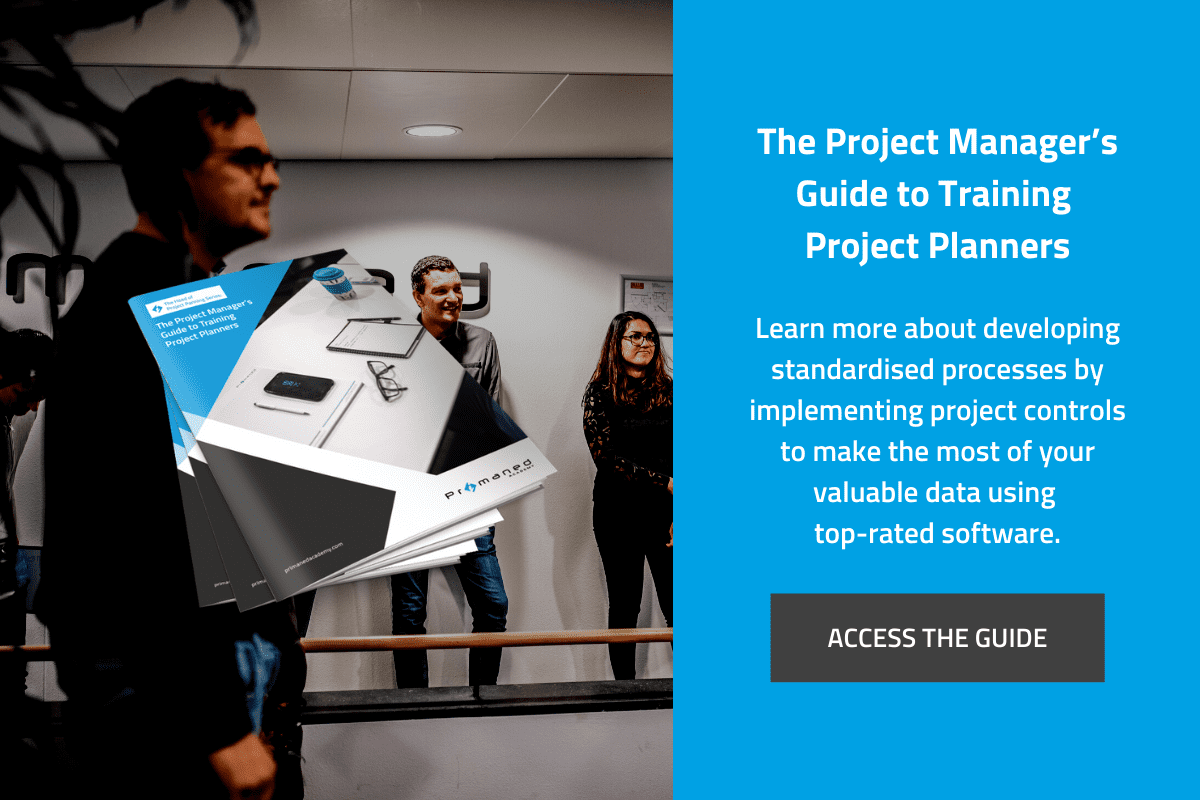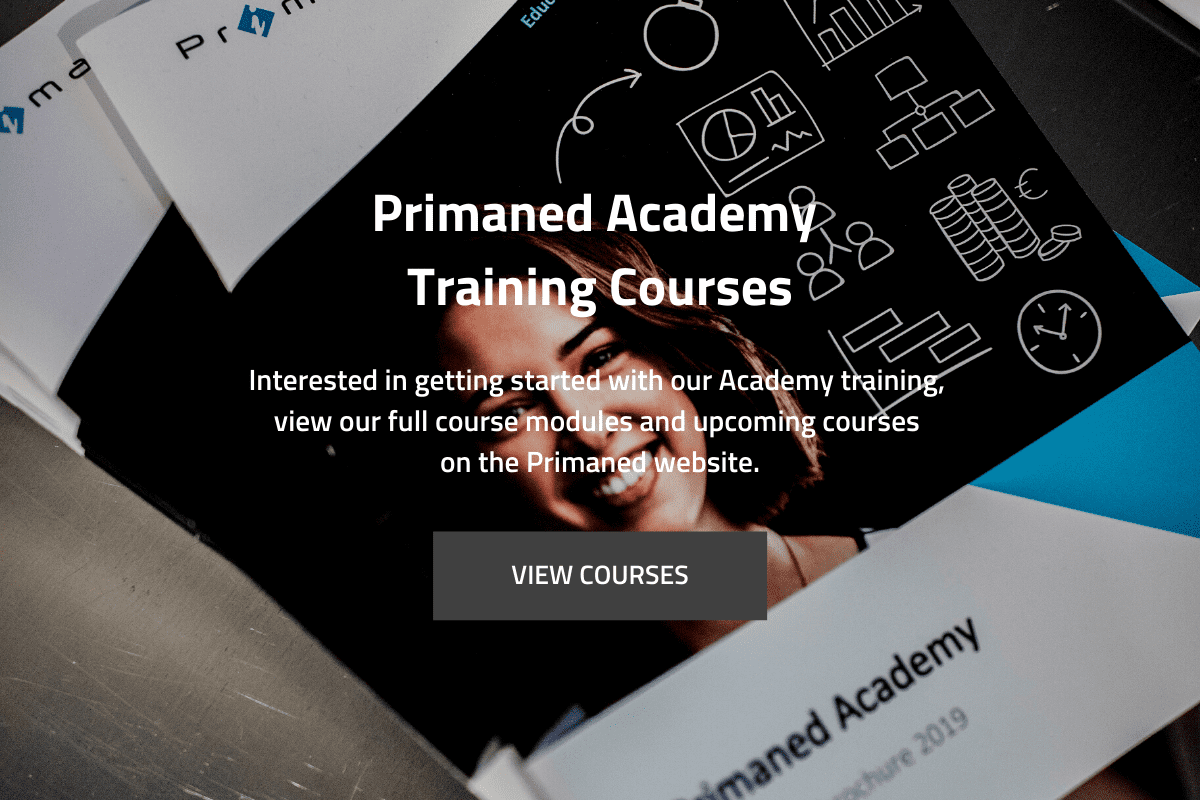7 Questions to Ask When Shortlisting the Right Project Controls Training Providers
By Paul Vogels on Aug 26, 2021 9:30:00 AM

7 Questions to Ask When Shortlisting the Right Project Controls Training Providers
If you’ve decided that project controls training is the best option for your team, then you’re probably thinking about researching some external providers, rather than looking at internal project planning training options.
Many Heads of Project Planning prefer to work like this, as external training can often provide delegates with greater information on project controls, and teams usually pay more attention to a professional trainer, too.
However, choosing an external provider for project controls training can be tricky.
It’s not enough to simply ask ‘what can you do for me?’ Or ‘how can you help us?’.
The problem with this type of questioning is that some providers will make unrealistic guarantees or claim to ‘completely understand your situation’.
They’re telling you what you want to hear to get you on board, but are likely to fall short on their promises.
Instead, it’s much better to stick to practical questions that can help you make a better, smarter, and more informed decision that is sure to benefit your project planners.
Here are 7 essential questions to ask when shortlisting project controls training providers:
1. How much does training cost?
This should always be the first question.
You don’t want to fall in love with a provider, only to find out further down the line that their training courses are well out of your budget.
Always be wary of providers that aren’t transparent with their training costs.
This can sometimes mean that there are hidden fees that can make courses more costly overall than they first appear.
It’s always better to choose a provider that’s open and honest about their fees so that you can properly budget and plan for the training.
2. How do I know my team will receive quality training?
Look for project controls training courses that have been designed with input from both academics and dedicated project controls consultants or engineers.
This is what differentiates high-quality training from low-quality training.
Consultants and engineers ensure that course content covers all the necessary aspects of project controls, while academics ensure that this content is delivered in the best possible way for planners.
This combination helps to create practical, pragmatic, theoretically-based courses.
3. How long does the training course last?
Project controls training courses can last anywhere from just half a day to almost an entire week, depending on whether the course focuses on theory, tooling, or comprehensive use of project controls.
Course length should be a major consideration.
After all, you don’t want to book your planners on a longer course if it means taking them off an urgent project.
And you don’t want to arrange a short half-day course if your planners need more.
It’s important to choose a course that fits planners’ needs.
4. What experience do you have delivering project controls training?
As you may already have discovered, there are not many providers around who can demonstrate long-term experience in delivering high-quality project planning and Primavera training.
That’s because there are really no ‘formal’ training options in these areas.
So look for providers who can demonstrate experience in ‘training in the absence of training’; training in project controls even though formal training doesn’t exist.
Check out training catalogues to see what providers have offered in the past.
5. Who are your trainers?
It is always best when project controls training is delivered by professional, experienced, and well-trained teachers, consultants, and application specialists from academic backgrounds.
An academic background ensures that trainers are able to deliver course content in a way that your team can understand and absorb.
It’s also a good idea to seek trainers who have gained - or are currency gaining - experience across many projects, giving them a broad knowledge of the needs of different industries.
6. Where does training take place?
If your planning team is dispersed and you want them to be able to access project controls training remotely, then there’s no point in choosing a provider that only offers on-site training.
Similarly, if you want face-to-face interaction, it makes no sense to choose a provider that operates online only.
If you’re planning to work with a provider long-term, remember that your needs may change in the future, so it can be a good idea to select a provider that offers classroom, in-company, and remote training.
7. Do you have testimonials from former delegates?
If a provider has been delivering project controls training courses for a number of years, then they should be able to demonstrate social proof of their impact and success.
Some may publish testimonials or case studies on their website, while others may rely on customers leaving reviews through third-party platforms.
Always do due diligence, and research training providers before making a decision.
Hearing from others that have completed a course can really help to give you confidence in your decision making.
- OPC (15)
- Software (12)
- PC Boardroom (11)
- Academy (9)
- Consultancy (7)
- Manager Project Controls (6)
- IT / Procurement (5)
- Planning Engineer / Scheduler (5)
- Project/Assets Manager (4)
- Information Manager (3)
- BI & Data Analytics (2)
- C-level (2)
- Document Controller (2)
- Document Management (2)
- Oracle Aconex (2)
- Project Controls (2)
- Risk Manager (2)
- Scheduling Lead (2)
- Operational project staff (1)
- PMWeb (1)
- Resource Manager (1)
- Safran Risk (1)
Subscribe by email
You May Also Like
These Related Stories

Project Planning Training: Your Internal vs External Training Options Explained
Project Planning Training: Your Internal vs External Training Options Explained ‘Europe needs to create more training and career pathways’.

Project Control Examples: Why Savvy Heads of Planning are Elevating Project Controls into Their Project Team Training
Project Control Examples: Why Savvy Heads of Planning are Elevating Project Controls into Their Project Team Training Project controls may not be something you …

The Head of Project Planning Series: People, Processes & Tools, How to Quickly Recruit, Systemise, and Train Project Planners
The Head of Project Planning Series: People, Processes & Tools: How to Quickly Recruit, Systemise, and Train Project Planners No matter what industry you op …



